
Submit a pitch: “Life After the Elections”
July 22, 2024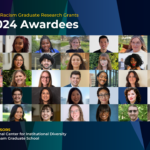
Anti-Racism Collaborative awards nearly $100,000 in Graduate Research Grants
August 20, 2024Six faculty named 2024 Anti-Racism Research & Community Impact Faculty Fellows
August 16, 2024
The Anti-Racism Research & Community Impact Faculty Fellowship provides instrumental support to early career faculty to advance their anti-racism scholarship. Informed by ongoing discussions with anti-racism scholars at the University of Michigan, the fellowship aims to address a critical need—to successfully advance in the tenure and promotion process while concurrently supporting their efforts to utilize their expertise to fight systemic racism through policy advocacy, practice, teaching, and/or community partnerships. The fellowship provides funding to support research and public engagement that align with the aims of the initiative.
“It is often assumed that scholarship can make an impact on the personal lives of the individuals under study and in the public more generally. That assumption is often untested and unexamined, even by those who produce scholarship for that purpose,” says Alford Young Jr., ARC faculty director and University Diversity and Social Transformation Professor of Sociology, Afroamerican and African Studies, and Public Policy. “In supporting early career scholars who are intentional about impact, this initiative establishes a foundation for examining precisely what kind of impact can be made through scholarship, how effective that impact might be, and how future scholarly efforts might build upon these early achievements.”
The National Center for Institutional Diversity (NCID) is home to the Anti-Racism Collaborative (ARC), a space created to facilitate University of Michigan (U-M) community engagement around research and scholarship focused on racial inequality, racial justice, and anti-racist praxis. The ARC supports a variety of activities to catalyze innovation in research and scholarship, as well as informed practice, public engagement, and action to advance anti-racist principles and organizing.
2024 Anti-Racism Research & Community Impact Faculty Fellows
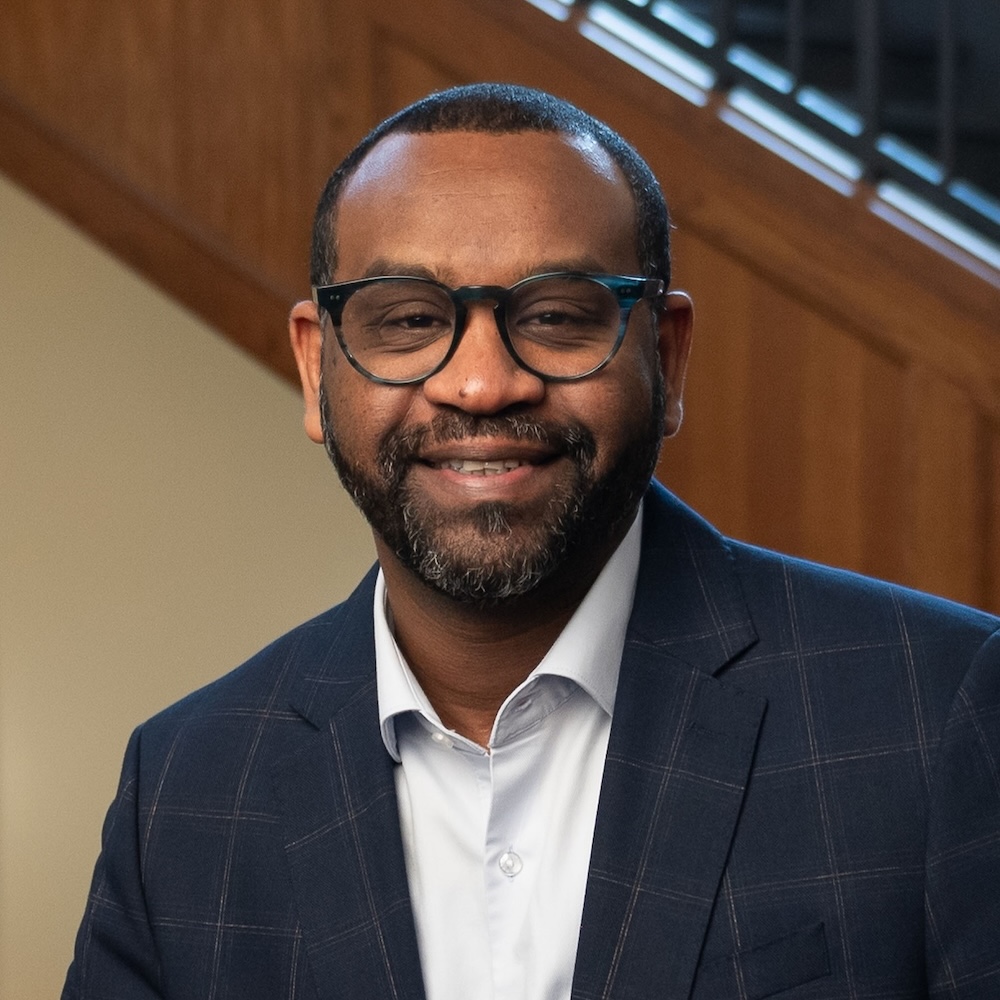
Data Governance in Africa: Decolonizing data infrastructures and imaginaries of the future
Yousif Hassan
Assistant Professor, Gerald R. Ford School of Public Policy, Ann Arbor
There is a growing interest in Artificial Intelligence (AI) as an economic growth and social development opportunity in many sectors in Africa, including agriculture, healthcare, and education, among others. However, one of the major issues concerning AI development in Africa is the lack of data protection laws that govern the development of AI in the continent. Another issue is that the majority of AI ethical guidelines are being developed by Western countries, and very little energy has been devoted to examining governing models that are best suited for other geographies in the Majority World, particularly Africa. This raises a number of issues about AI governance in Africa. For example, how should African researchers and policymakers approach the lack of African perspectives in the governance and development of AI technology, and what do they need to do to narrow the gap? How should questions of raciality and inclusion be approached in AI governance and the adoption of AI technology in Africa? What does it mean to innovate in AI and data science from Africa? And how does the entanglement of AI technology and datafication practices with global technoscientific capitalism impact the dissemination of AI innovation practices and policy in Africa? This proposal seeks to address these questions by conducting a systematic analysis of the current landscape of AI governance in Africa as a first step. The main objective of this effort is to gain a greater understanding of the issues, challenges, and opportunities surrounding the ethical and responsible use of AI in the continent and lay the foundation for a subsequent research agenda that attempts to address AI governance issues in Africa. The major deliverables of this project will be a policy report analyzing the current landscape of AI and data policy in Africa and a major academic journal article examining the different ideas and debates about AI governance and innovation in the continent.
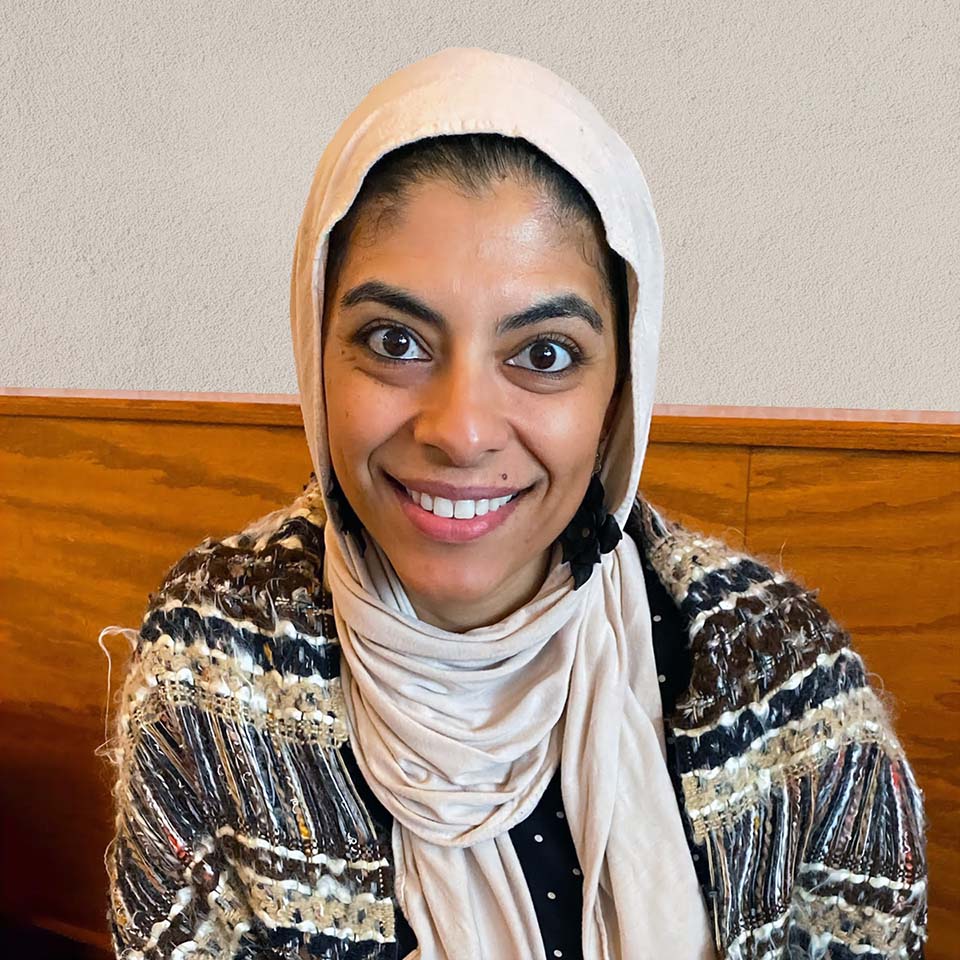
Mitigating Inequities in Accreditation of Religious Institutions
Nancy Khalil
Assistant Professor, College of Literature, Science, and the Arts, Ann Arbor
Muslim seminaries in the US currently have no access to religious accreditation by any existing board recognized by our accreditation recognizing bodies (Department of Education and Council on Higher Education Accreditation). This study is to convene a research team designing a project including founders and directors of US Muslim seminaries currently endeavoring to establish a Muslim accreditation board in the US to ask, how might non-Christian and non-Jewish institutions, like Muslims', address the current accreditation inequities? The idea of a Muslim Accreditation Board is historic and critical in the institutionalization of Islam in the US and understanding American religion. Convening stakeholders interested in pursuing a Muslim accreditation board aims to prioritize an inclusive mission for its foundation by bringing together currently disparate institutional leaders to consider racial and sectarian lines and its long-term impact and sustainability.
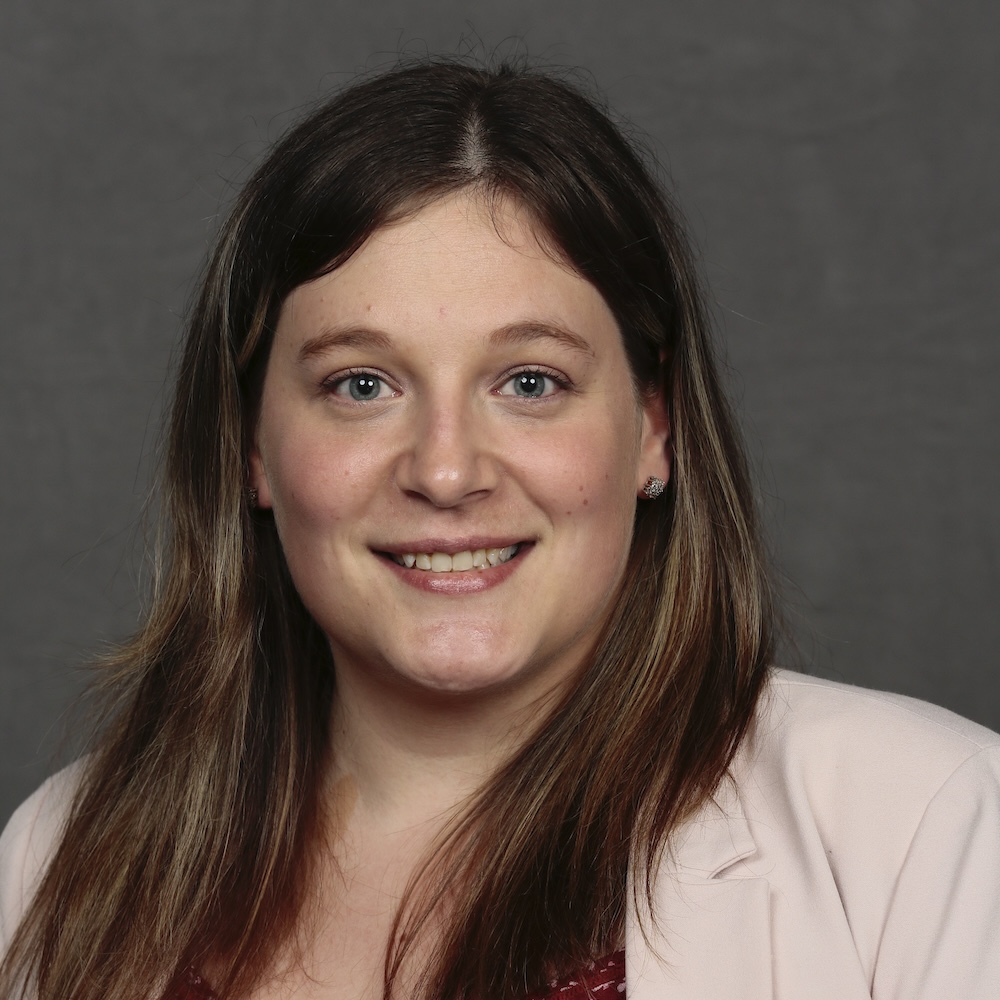
A Community-Based Approach to Supporting Flint Parents’ Knowledge and Promotion of STEM
Jennifer LaCosse
Assistant Professor, College of Arts, Sciences and Education, Flint
Amongst declining enrollments in public schools and high turnover among school administrators and teachers, resources and better-prepared teachers flow to wealthier school districts, and less certified and less prepared STEM teachers must meet the needs of children in districts where enrichment opportunities are far and few between. This leaves Flint parents to fend for themselves when it comes to their children’s STEM education. Informal interviews with Flint parents and monthly discussions with community leaders indicate that Flint parents want to support their children’s pursuit of STEM, they just vary in the extent to which they know what that support should look like or even where to get started. We propose three studies that will each build off the previous studies. To begin the project, we will conduct listening sessions with Flint parents (i.e., focus groups) to gain deeper insights into their perspectives, experiences, and aspirations regarding their children's college and STEM preparation. A second study will use a carefully crafted survey to capture the specific needs, concerns, and experiences of Flint parents—as expressed in the focus groups—regarding college preparation and a career in STEM. A third study will test a Flint-parent tailored intervention designed to increase parents’ willingness to encourage their children to pursue STEM, and feelings of self-efficacy when it comes to supporting their children’s college journey generally and their journey in STEM specifically. We will use a pre-post design with the same measures being distributed directly before the event and one week after the event.
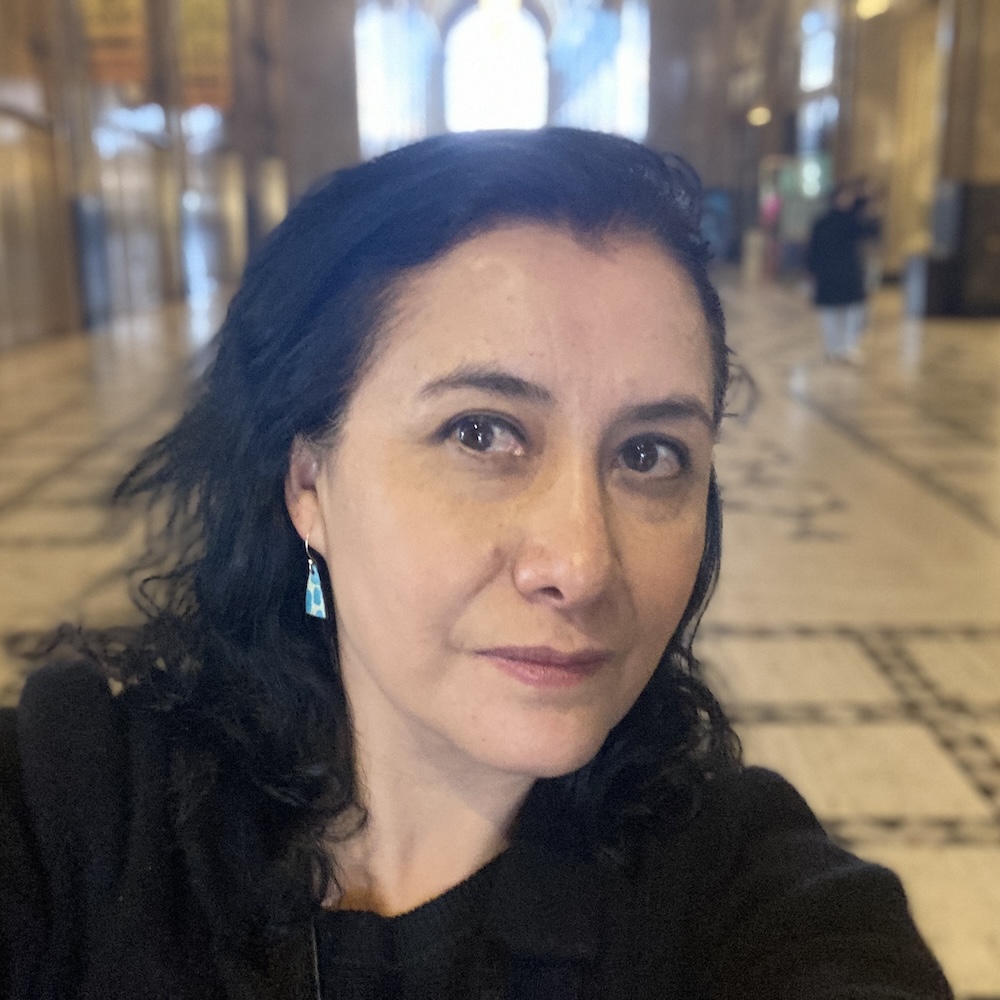
Precarious employment as a social determinant of cardiovascular disease in farmworkers
Lisbeth Iglesias-Rios
Assistant Professor, School of Public Health, Ann Arbor
Cardiovascular disease (CVD) is the leading cause of mortality and morbidity in the United States (US). Farmworkers in the US, who are predominantly Latinos, face important health disparities on cardiometabolic risk factors [obesity, hypertension, and Type 2 diabetes mellitus (T2DM)] and CVD. Precarious employment, often defined by ‘job features’ such as low wages, irregular working hours, and limited or no fringe benefits, is disproportionately represented among women and people from minoritized communities, including Latinos. Research and measures on precarious employment have been developed primarily among urban, salaried, and workers with standard work arrangements despite the fact that low-income and individuals from minoritized communities are actually overrepresented in precarious jobs. Farmworkers have been historically affected by racist policies that exempt them from labor and social protections conferred to workers in other sectors, potentially exacerbating the work precarity and labor exploitation in this workforce. Public health research with farmworkers has documented precarious working conditions for these workers through single individual-level proximal measures (e.g., injuries). The proposed research aims to provide novel insights regarding the impacts of precarious employment and CVD in a marginalized population of farm workers. Specifically, we will identify and conceptualize multidimensional measures of precarious employment to assess farmworkers’ health and examine cross-sectional associations of precarious employment and cardiometabolic risk factors using data from the National Agricultural Worker Survey to cardiovascular outcomes using publicly available data. Employment precariousness is modifiable and may be an essential structural factor for health inequities and anti-racism praxis, given its central role as a social determinant of health, making it a critical research topic for study.
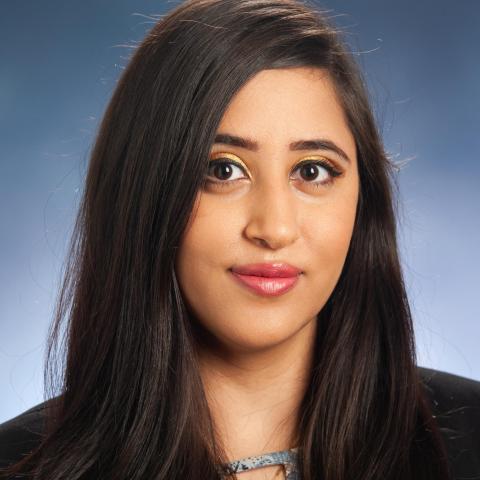
Observing Arab American, Middle Eastern, and Muslim Experiences in the Context of Greater Diversity on Campus and in the Community
Amny Shuraydi
Assistant Professor, College of Arts, Sciences, and Letters, Dearborn
The current study aims to assess the campus climate and perspectives regarding issues surrounding the current political climate using a holistic approach. Rather than simply studying fear and perspectives among Arab and/or Muslim students, I propose a wide-scale study across the three campuses—all of which comprise of different demographics—in order to assess the overall feelings, perspectives, concerns, and experiences of University of Michigan students, faculty, and staff across various ethnic, religious, and social backgrounds. Collecting data from people of all walks of life can aid in creating a control group as a basis of comparison in understanding whether the responses of Arab and Muslim Americans vary from those of other ethnic groups or vary across campuses. Furthermore, the data can help us to understand how these overarching issues regarding justice impact—or don’t impact—other marginalized groups on campus.

Addressing Knowledge Gaps in Biomedical Science Training: Uprooting Scientific Racism from our Understanding of Human Variation & the Microbiome
Ariangela Kozik
Assistant Professor, College of Literature, Science, and the Arts, Ann Arbor
The misapplication of race within the realm of scientific and medical research has significantly impeded groundbreaking advancement while perpetuating racial biases and systemic inequities. This proposal recognizes the urgency for transformative change in the teaching of biomedical sciences. Aimed at recontextualizing the historical and present-day misuse of 'race' as a biological category, I propose to develop an interdisciplinary course specifically designed for upper-level undergraduate and graduate-level students. The course includes a critical examination of race's inception and application during the Enlightenment period, its entanglement with biological determinism, and its misguided operationalization that taints contemporary scientific endeavors. Enrollees in this course will delve into a journey of intellectual unlearning and re-learning—debunking myths of biological racial differences, dissecting the impact of such misconceptions on scientific practices, and fostering an informed dialogue about racism’s role in shaping health disparities. Emphasizing the importance of a rigorous understanding of scientific history, students will develop the skills necessary to discern the nuances of ancestry, ethnicity, and genetic diversity. The funding requested will not only facilitate the creation of this pivotal coursework but will provide for a graduate student assistant and enable subsequent assessment of the course’s impact on students' understanding and attitudes. Through educating the scientific leaders of tomorrow, this course will establish a legacy of critically minded scholars equipped to dismantle entrenched racial biases in healthcare and research. It is a first step towards a future where science and medicine honor the rich tapestry of human diversity in the quest for global health and well-being.
